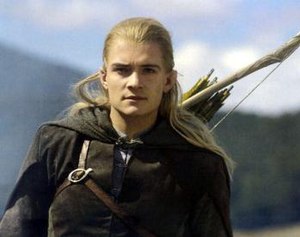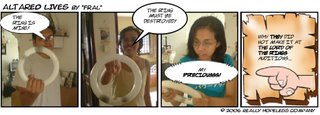 Image via Wikipedia"Elen síla lumenn' omentielvo"
Image via Wikipedia"Elen síla lumenn' omentielvo"A parishioner greeted me earlier this Sunday morning in Elvish, Quenya Elvish to be exact. I was caught unawares by the gesture and when I managed to regain my composure, I was pleasantly surprised that she had managed to spur within me my previous love affair with Tolkien's Lord of the Rings universe of books and films (i.e. the Peter Jackson's masterpiece).
I had first came across that literary masterpiece when I was a teenager and trying my best to grasp the worlds, people and the goings-on in the 3-volume Lord of the Rings tome which spanned the Fellowship of the Ring, The Two Towers to The Return of the King. I did have a go at trying to make some sense of what Elvish language was then, from the appendices given in those books, but that came to naught...
I was at IHM this morning (Sunday), helping out with the Masses there, including preaching at all Masses. The priests of the parish were shorthanded, so I was 'recalled' to assist this weekend and I duly obliged. While waiting for the next Mass to begin, that was when I bumped into that parishioner and her Elvish greeting. What that means is:
A star shines on the hour of our meeting
I, of course, wanted to reply in equal gusto, but was found wanting as I never did get into learning Elvish to a decent and coherent level. If I could, I would have said, "Mae govannen", meaning "Well met", or "Mára aurë" meaning "Hello" or even "Le suilon" meaning "I greet thee".
I like the one uttered by the parishioner, though, because it goes deeper than just meaning "good day" or "how are you?". It implies a bond of familiar friendship and one that came about after some level of hardship or trials encountered together where one survives and lives to tell the tale. I guess hearing that managed to close up some earlier wounds concerning my previous stay in IHM.
That is the power, which language can sometimes do to a person.
Till the next one, No galu govad gen! (May blessings go with you!)










